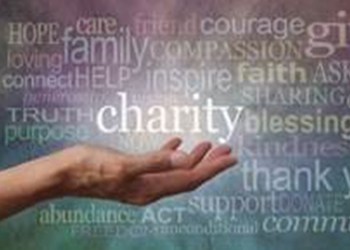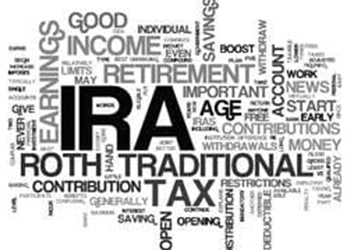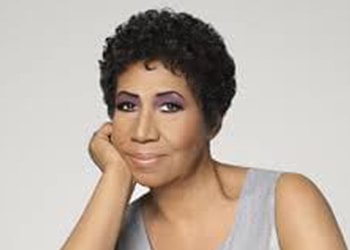Blogs

November is Caregiver awareness month here in the United States. In today's blog we're focusing on unpaid, or informal eldercare - unpaid caregivers (be they spouses, children, partners, neighbors or others) who provide assistance to elders with activities of daily living. This assistance can range from routine tasks such as meal preparation, assistance with shopping or medical appointment setting and transportation - to bathing, dressing and feeding. As you will see, there is a whole lot of responsibility being shouldered by millions. BY THE NUMBERS According to a 2017 Bureau of Labor Statistics study, 41.3 million people provided unpaid eldercare in 2016. That's sixteen percent of what has been referred to by the Bureau as the "civilian noninstitutional population" over the age…Read More

There's still some time left to make charitable deductions in time for them to count on your 2018 tax returns. In what instances do they help your tax bill, though? Steve Hartnett spells it out HERE.Read More

Though you cannot transfer IRAs into a trust as you can with other assets, you can name a trust as a beneficiary. There are good reasons to do so, but certain guidelines must be followed. Our American Academy of Estate Planning Attorneys Colleague, Steve Hartnett, breaks down the basics HERE.Read More

In the last six years, U.S. consumers had more than $107 billion dollars stolen due to identity theft. The AARP estimates that an identity is stolen every two seconds. Protecting yourself and your loved ones has never been more important. How can you make sure it doesn't happen to you? START AT HOME Getting started with protecting yourself doesn't have to be daunting. Beginning with guarding non-digital information is a great way to go. That means keeping your social security card safe. Consider a home safe or lockbox, or even a bank's safe deposit box to store it and other important documents. Securing your mail is also key. Consider getting a locking mailbox or cancelling paper credit card and financial…Read More

While autumn is in the air and you can feel the seasons starting to change here in Massachusetts, parts of the country are still experiencing devastating flooding and the after effects of Hurricane Michael. Mexico Beach, Florida was nearly flattened by Michael's fury. The death toll stands at 36 today, and 37 people perished in Hurricane Florence just last month. The Atlantic Hurricane season runs through November. So, just because autumn has arrived in the Bay State, that doesn't mean we are out of the woods. Just six years ago, the second costliest hurricane in history, Hurricane Sandy, hit in late October. Winter snow storms and potential power outages are also just around the corner! It's always good to be prepared; and seniors need…Read More

Author Leslie Milk and her late husband thought they shared everything, but there were conversations they never had that made Mr. Milk's passing even more difficult and exacerbated her grief. Mrs. Milk shares her story about the unexpected fallout after her husband's death in this insightful article from the AARP. Click HERE for the full story.Read More

Aretha Franklin passed on August 13, 2018 - intestate. That means she had no will or trust and a judge will be deciding how her estate is distributed in public probate proceedings. This will have many implications for her family. Our American Academy of Estate Planning attorneys Colleague, Steve Harnett takes a look at some of them in this blog. We at Solutions Law Group LLC want to make sure the same doesn't happen to you. We host frequent, complimentary, Estate Planning seminars to teach you how to protect your assets and your family. To learn where we will be next, visit our seminar page at: www.solutionslawgroup.com/seminarsRead More

Many elders rely on their children, grandchildren, nieces, or nephews to care for them, but for those without family - or whose families predecease them - that is not an option. This set of seniors is a growing population. Often these folks are called "Elder orphans" or "solo-agers" on the internet and in the media. Whatever the moniker, this stage of life presents the same challenges - and some unique ones - for those facing their golden years on their own. Thankfully there are some splendid estate planning techniques and terrific technological ideas out there to help. WHAT'S THE PLAN? Estate planning is crucial for everyone, but all the more critical for those without a built-in familial support system. According…Read More

Estate Planning isn't just for the old and gray, it's for anyone who owns anything and cares what happens to it. Maybe you don't own a home, or have other major assets, but you have a life insurance plan from your employer. Maybe you have none of those things but still need to legally designate who makes healthcare decisions when you cannot - you still need a plan, or the government makes one for you. Our American Academy of Estate Planning Attorneys colleague, Steve Hartnett breaks it all down in this blog. CONTINUE READINGRead More

TREATMENT OF INCOME When a nursing home resident becomes eligible for Medicaid, all of his or her income, less certain deductions, must be paid to the nursing home. The deductions include a $72.80-a-month personal needs allowance, a deduction for any uncovered medical costs (including medical insurance premiums), and, in the case of a married applicant, an allowance he or she must pay to the spouse that continues to live at home. SPOUSAL PROTECTIONS Assets Medicaid law provides special protections for the spouse of a nursing home resident, known in the law as the "community" spouse. Under the general rule, the spouse of a married applicant is permitted to keep one-half of the couple's combined assets (as of the date of…Read More
